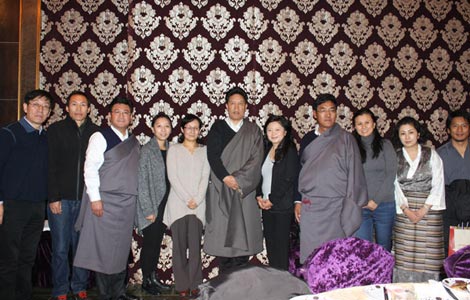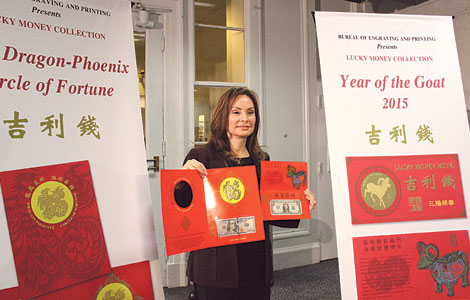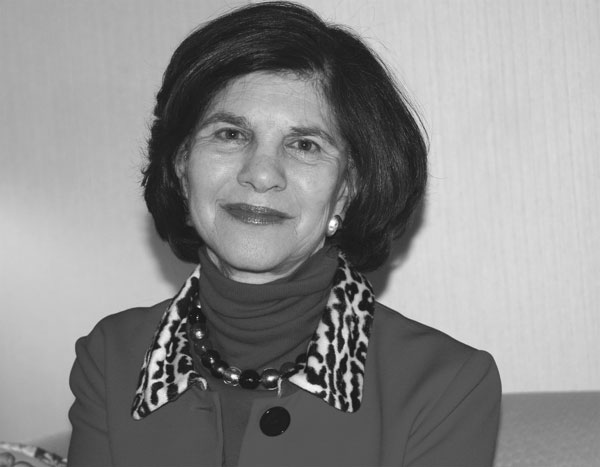Opening minds through film
Updated: 2014-12-04 12:13
By Jack Freifelder in New York(China Daily USA)
|
||||||||
Filmmaking can be interpreted on many levels, which makes it one of the most versatile mediums for addressing cross-cultural exchange, according to foreign film expert Roberta Seret.
"My whole theory is that film is a new art," Seret said in an interview Wednesday with China Daily. "When we talk about the arts, we go back to dance, music, poetry, literature, all of which are extremely old compared to film. The borders have really not been defined yet, but I find that film can be used to teach, and it hasn't been done enough.
"There are some places in the world where you cannot physically get to, but that doesn't mean we shouldn't know about them," Seret said. "Students of all ages, both younger and older, are visual learners, and I find seeing is believing."
Seret is the founder and president of International Cinema Education Inc (ICE), a non-governmental organization (NGO) founded with the goal of educating students about global issues through film. The group was established in 2003 and achieved NGO status in 2006.
ICE uses film as a catalyst to expose students to global conflicts and facilitate discussions of international issues, Seret said.
"Film can be interpreted on many levels; that's the beauty of it," Seret said. "But my pedagogy is to make a combination out of the visual and the literary. There are things we pick up visually that we don't pick up with the written word, and the word somehow reinforces that visual stimuli."
"That's the whole point," she said. "We show films because they pique curiosity. That curiosity opens up the mind for a student to say, 'I want to explore this more.' "
ICE also hosts a number of events to promote its mission, including Global Voices Through Film, a program that gives public high school students a chance to view and discuss foreign films in a classroom setting.
More than 8,000 students have participated in the organization's programs since its inception, ICE's website said.
Seret, who hold a doctorate in comparative literature and a master's degree in French from New York University, has lectured and taught on a variety of topics across visual and textual mediums throughout her career.
She has also published a number of books as well, including a July 2011 release titled, World Affairs in Foreign Films: Getting the Global Picture.
In the book, the author introduces readers to foreign cultures through the lens of 13 award-winning films from around the world. A 2001 Chinese film, Beijing Bicycle, acts as the book's chapter on China while addressing a number of issues through the rural-urban socioeconomic divide in China (theft, delinquency, etc).
Seret said that one of the most important things she emphasizes to her students is the power of the "Socratic approach".
The Socratic method is a form of inquiry and discussion between individuals, based on asking and answering questions to stimulate critical thinking and to illuminate ideas.
"We learn from good questions, and that's where the visual and literary become a platform to take study to the next plateau - cultural understanding," Seret said.
On Dec 10, Seret will host a film event at the United Nations. There, she and invited guests will discuss the film Not One Less, a 1999 drama directed by Chinese filmmaker Zhang Yimou.
"In the film I'm going to screen next week, we see the people in China are moving away from the time of the 'cultural revolution'," Seret said. "We see that the Chinese in the film are encouraging education, just like we are. But when you're looking at the countryside, you're looking at places that you wouldn't go as a tourist."
The plot of the film revolves around a substitute teacher in a rural area of China who is tasked with leading her class while not losing any students. The film addresses many levels of education reform in China along the way, especially rural education, Seret said.
"The boy from the countryside in this film speaks a different dialect, and he has a different accent, so we pick that up, too," she said. "You see the teacher who wants to help these kids, you see the dedication and you see how important education is, so it shows us a lot. You wouldn't be able to pick that up in literature, but you see that in film."
Seret said that when she started her career, literature was "the medium of expression".
"In the last 10 to 15 years, the old saying, 'If you can't beat them, join them,' came to mind. So I said, 'Let me use the screen and the visual learning, but not negate the old-fashioned way' because I still believe literature is of great value," Seret said.
"The future of a civilized world is through education, and so is the future of a community that understands global issues," she said. "We all want education, friendship, love; that's universal, and films show us that. That's where we all are related through a universal language."
jackfreifelder@chinadailyusa.com
|
Roberta Seret, founder and president, International Cinema Education Inc. Jack Freifelder / China Daily |
(China Daily USA 12/04/2014 page3)

 Last artistic flourish in neighborhood to be demolished
Last artistic flourish in neighborhood to be demolished
 Parents 'see' through the eyes of their child
Parents 'see' through the eyes of their child
 Carpenter carves armored vehicle from wood
Carpenter carves armored vehicle from wood
 Reclusive old men in the Qinling Mountains
Reclusive old men in the Qinling Mountains
 Greetings from Tibet
Greetings from Tibet
 A buck to the Year of the Goat
A buck to the Year of the Goat
 China-US Internet Forum in DC
China-US Internet Forum in DC
 Shanghai native creates mini car by hand
Shanghai native creates mini car by hand
Most Viewed
Editor's Picks

|

|

|

|

|

|
Today's Top News
Meet an original Bambi artist, 104
Gay dating app in China gains funding
Obama upbeat on future of US-China ties
US startup a good fit for China electronics player
93% of Chinese govt websites have security loopholes: report
2014 likely to be warmest year
Blending of cultures benefits world
Mutual governance of cyberspace called for
US Weekly

|

|








